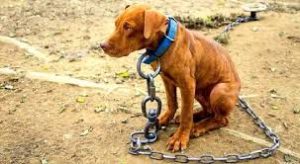 In the world of altruism, volunteers emerge as radiant beacons of hope, generously dedicating their time, talents, resources, and compassion to noble causes. Nowhere does this spirit shine brighter than in the field of animal welfare. From providing enrichment and socialization to offering administrative assistance and fundraising support, volunteers play a pivotal role in the success and impact of animal shelters. As someone deeply passionate about the welfare of animals, I believe that volunteer engagement is not only vital, it is transformative, enriching the lives of shelter animals and fostering a sense of community and purpose among volunteers. Continue reading “The Power of Volunteer Engagement”
In the world of altruism, volunteers emerge as radiant beacons of hope, generously dedicating their time, talents, resources, and compassion to noble causes. Nowhere does this spirit shine brighter than in the field of animal welfare. From providing enrichment and socialization to offering administrative assistance and fundraising support, volunteers play a pivotal role in the success and impact of animal shelters. As someone deeply passionate about the welfare of animals, I believe that volunteer engagement is not only vital, it is transformative, enriching the lives of shelter animals and fostering a sense of community and purpose among volunteers. Continue reading “The Power of Volunteer Engagement”
The Power of Behavioral Rehabilitation in Under-Budgeted and Under-Staffed Shelters
 In the intricate web of animal welfare, the journey towards finding loving homes for shelter animals often encounters roadblocks in the form of behavioral challenges. These challenges, ranging from fear and anxiety to undesirable behaviors, can significantly hinder an animal’s chances of adoption and long-term success in a home environment. However, within the constraints of under-budgeted and under-staffed shelters, lies an opportunity for innovation, resourcefulness, and unwavering dedication to the well-being of every animal in our care. Let us embark on a transformative exploration of behavioral rehabilitation, uncovering the strategies and principles that empower shelters to nurture the minds and transform the lives of shelter animals. Continue reading “The Power of Behavioral Rehabilitation in Under-Budgeted and Under-Staffed Shelters”
In the intricate web of animal welfare, the journey towards finding loving homes for shelter animals often encounters roadblocks in the form of behavioral challenges. These challenges, ranging from fear and anxiety to undesirable behaviors, can significantly hinder an animal’s chances of adoption and long-term success in a home environment. However, within the constraints of under-budgeted and under-staffed shelters, lies an opportunity for innovation, resourcefulness, and unwavering dedication to the well-being of every animal in our care. Let us embark on a transformative exploration of behavioral rehabilitation, uncovering the strategies and principles that empower shelters to nurture the minds and transform the lives of shelter animals. Continue reading “The Power of Behavioral Rehabilitation in Under-Budgeted and Under-Staffed Shelters”
The Timeless Connection Between Humanity and Equines
In the bustling hum of urban life and the echoes of history’s whispers, there exists a profound and enduring tale of kinship – the timeless bond shared between humans and equines. As we venture into the depths of this intricate relationship, the narrative unfolds, revealing a tapestry woven with threads of companionship, resilience, and shared destinies. Continue reading “The Timeless Connection Between Humanity and Equines”
history’s whispers, there exists a profound and enduring tale of kinship – the timeless bond shared between humans and equines. As we venture into the depths of this intricate relationship, the narrative unfolds, revealing a tapestry woven with threads of companionship, resilience, and shared destinies. Continue reading “The Timeless Connection Between Humanity and Equines”
Ban the Tether: Why Chaining Up Dogs Should be a Crime by Ed Boks
 A seemingly simple solution to a problem can have traumatic, unintended consequences. Consider tethering. A tether is a rope, leash, or chain used to restrict the movement of a dog. Some people believe it controls and tames a misbehaving pet.
A seemingly simple solution to a problem can have traumatic, unintended consequences. Consider tethering. A tether is a rope, leash, or chain used to restrict the movement of a dog. Some people believe it controls and tames a misbehaving pet.
In 2005, the Los Angeles City Council disputed that notion by passing a tethering ban. Tethering your dog in Los Angeles can result in a $1,000 fine, six months in jail, or both! Continue reading “Ban the Tether: Why Chaining Up Dogs Should be a Crime by Ed Boks”
How dogs identify friend and foe by Ed Boks
 According to a study reported in the journal Current Biology, dogs pick up emotional cues from other dogs by watching the direction of their wagging tail.
According to a study reported in the journal Current Biology, dogs pick up emotional cues from other dogs by watching the direction of their wagging tail.
In a series of lab experiments, dogs became anxious when they saw an image of a dog wagging its tail to its left side. But when they saw a dog wagging its tail to its right side, they remained relaxed. Continue reading “How dogs identify friend and foe by Ed Boks”
Do Cats Need Us? by Ed Boks
 It appears Rudyard Kipling may have been correct when he suggested cats walk by themselves and don’t need us to feel secure.
It appears Rudyard Kipling may have been correct when he suggested cats walk by themselves and don’t need us to feel secure.
A study released by the University of Lincoln concluded that cats, unlike dogs, do not need humans to feel safe, preferring to look after themselves.
Earlier research had suggested cats show signs of separation anxiety when left alone by their owners, in the same way dogs do, but the results of this study found they are much more independent than canine companions – and what we had interpreted as separation anxiety might actually be signs of frustration. Continue reading “Do Cats Need Us? by Ed Boks”
Know when the human/dog bond can bite you in the face by Ed Boks
 A study conducted jointly from Monash University in Australia and Pedigree Petfoods found that the bond between a human and a dog may actually cause their heartbeats to sync with one another.
A study conducted jointly from Monash University in Australia and Pedigree Petfoods found that the bond between a human and a dog may actually cause their heartbeats to sync with one another.
The researchers connected three pairs of dogs and their owners to heart rate monitors. After separating the dogs from their owners for a period of time they brought the pairs together again and observed their heartbeats. They found that within a minute both heartbeats dropped significantly and “even appeared to mirror each other.” Continue reading “Know when the human/dog bond can bite you in the face by Ed Boks”
Is your pet suffering? by Ed Boks

The New York Times recently ran a piece by Jessica Pierce asking the provocative question “Is your pet lonely and bored?” Today there are as many pets in the United States as there are people; and in most homes pets are family — and not just dogs and cats, but rabbits, rats, bearded dragons and snakes.
According to many veterinarians and psychologists this phenomenon is evidence of a deepening “human-animal bond.” Scientists studying animal cognition and emotion are continually peeling back the mysteries of animal minds, revealing an incredible and often surprising richness in the thoughts and feelings of other creatures. Continue reading “Is your pet suffering? by Ed Boks”
Consider the snail by Ed Boks

In my last blog I discussed what we can learn from the ant regarding the benefits of collaboration and cooperation in the development of society.
Today I want to examine what we can learn from the snail regarding the detriments of social isolation.
In a recent article in the Independent, Sarah Dalesman explains that while stress negatively impacts the cognitive ability of numerous species, including their ability to learn and remember, the problems arising from stress are personal, and blanket statements regarding species may be misguided. Like humans, Dalesman explains that “not all individuals of a particular species are equally good at cognitive tasks to begin with, and they respond to the effects of stress in different ways.” Continue reading “Consider the snail by Ed Boks”
Does your dog suffer from ADHD? by Ed Boks

Do you sometimes wonder if your dog suffers from ADHD (attention deficit/hyperactive disorder)? Although this term is often bandied about, hyperactivity is actually very rare in canines.
According to Clinician’s Brief, a publication of the North American Veterinary Conference (NAVC), “hyperactivity” is defined as “over-activity, attention deficits, impulsivity, high testing physiologic parameters with a paradoxical calming response to amphetamines.” Continue reading “Does your dog suffer from ADHD? by Ed Boks”
